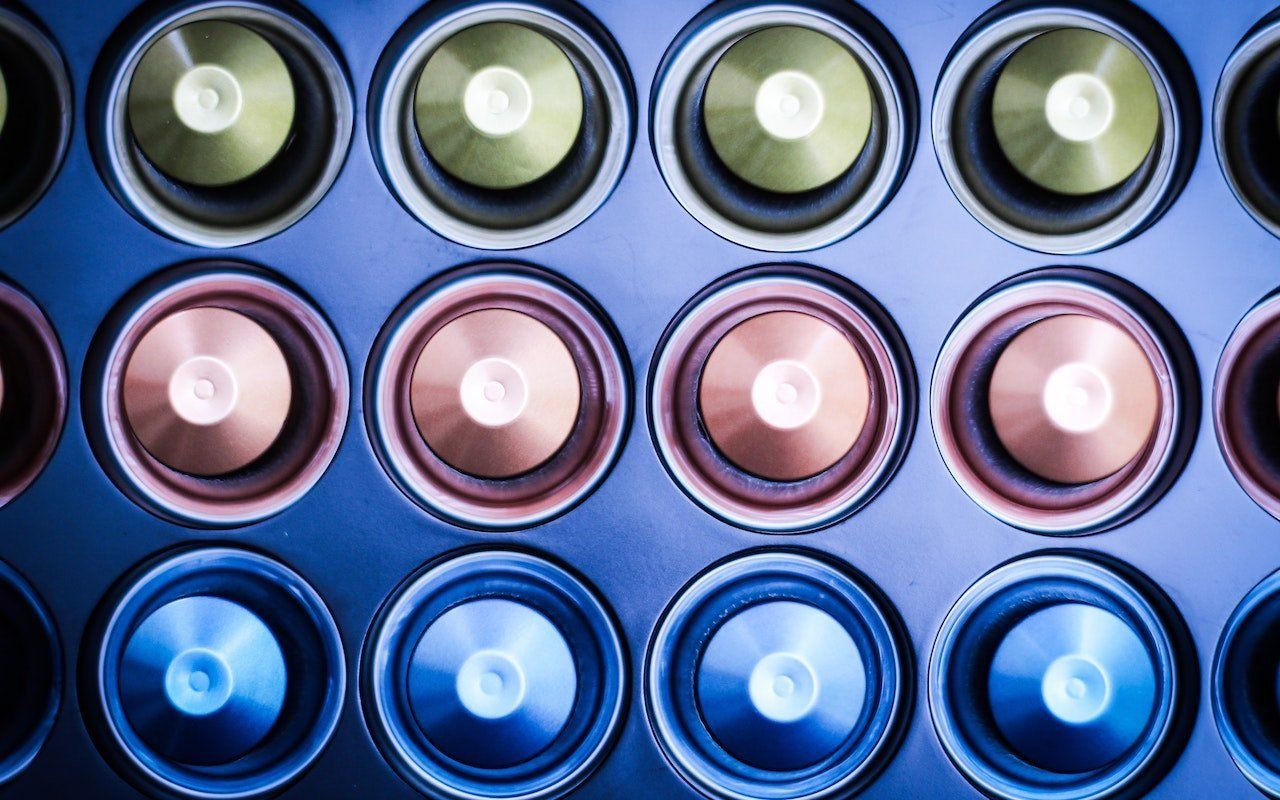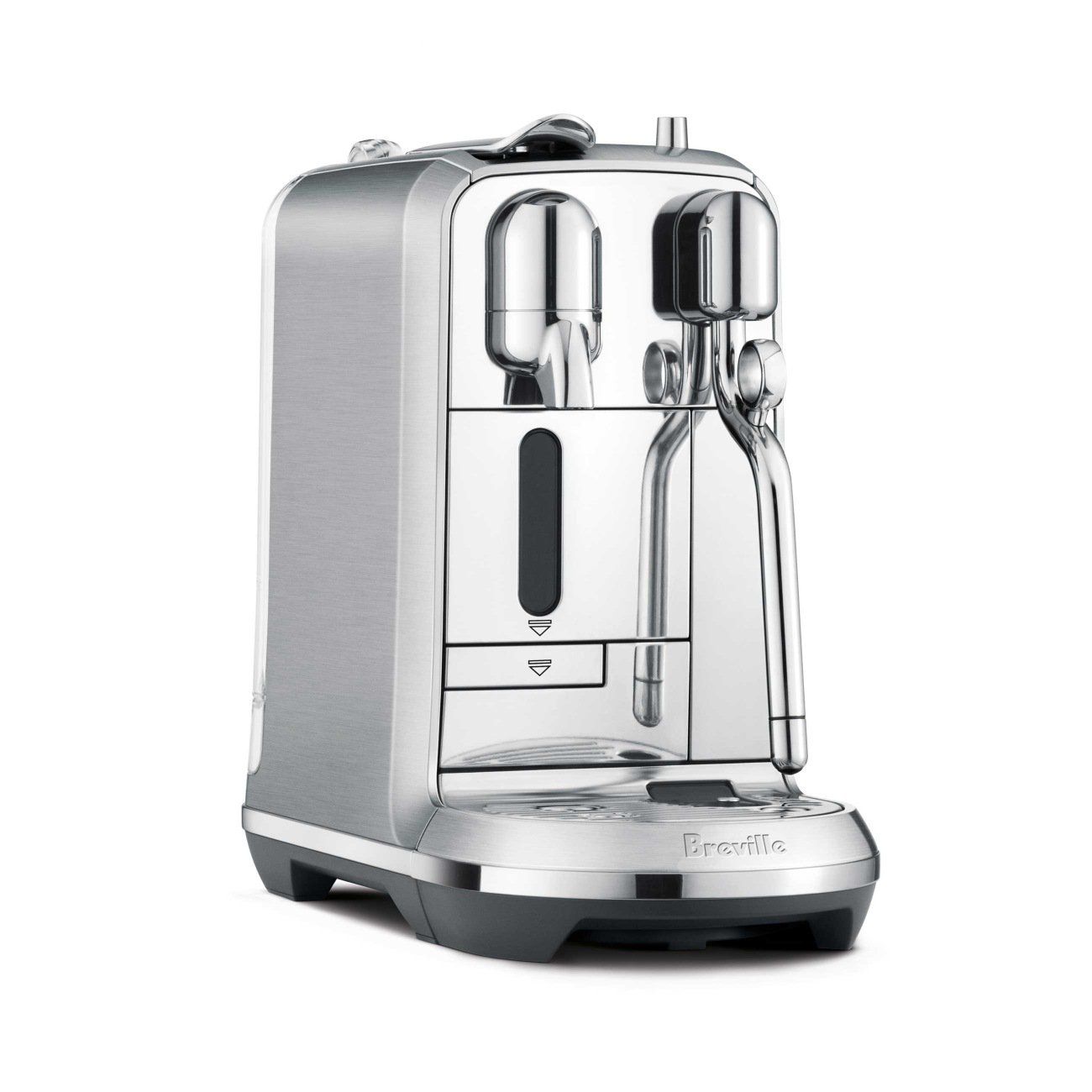The great coffee conundrum
Is there a way to enjoy convienient coffee ethically? Probably not. Am I a monster for enjoying coffee pods? It's complicated. But yes.

I love coffee. I love coffee so much that a doctor once told me I wasn’t allowed to have caffeine anymore. Now I hold great affection for decaf coffee and pretend it’s the same.
But I have to admit that my current enjoyment of coffee makes me feel like a terrible monster. A terrible monster who lives in flavour country. A terrible monster who is probably dooming the world while simultaneously giving money to a company whose former CEO once said that calling access to water a “human right” is “extreme”.

Because, the thing is, most decaf coffee tastes like the waste run off from an American coffee pot. It is expensive, burnt, gritty sadness.
Then, about 5 or 6 years ago, I discovered Nespresso. Nespresso uses the Swiss Water Technique to make beans decaf, so there’s no gross chemicals, and it removes the majority of the caffeine so my brain doesn’t freak out. While I’m aware it probably doesn’t taste the same as “real” coffee, it tastes close enough to my memory of it, and it’s warm, and good with chocolate.
However, every time I make a coffee, I have to use one of those aluminium pods. Aluminium is infinitely recyclable, so it’s certainly better than using any other kind of pod, and I always make sure to recycle my pods at the Nespresso store (I have two full cylinders and a very smelly bag to prove it while we wait for shops to open up again after lockdown).
Always recycling is good, yet that uses more resources like water and power, so it’s obviously not as good as just not creating the waste in the first place.
Now that more places make the good decaf coffee beans, there are a lot more options in 2020. That opens up new dilemmas.
Do I pretend that I’m willing to give up the convenience of just pressing a button to get coffee? I’m not a person in the mornings, I don’t know how to do things. Not in a Garfield “I hate Mondays” kind of way, or HashtagNotBeforeMyCoffee. I’m just lazy and incompetent when I first wake up and take a while to defrost. Think of me as a frozen breakfast burrito in the morning: disgusting without time and effort, and even then still pretty hit and miss.
Making a coffee using a traditional espresso machine is an art form. Baristas are undervalued. It’s not that easy to not burn the beans or the milk, and to get a great cup. I may drink Nespresso, but I’m still from Melbourne.
Another option is getting a Jura machine. They make truly incredible coffee at the touch of a button. The best I can remember having. They don’t use pods, instead grinding the coffee on demand to automatically make café quality coffee in an instant, complete with nicely steamed milk. The grinder is so fancy it even increases the amount of aroma.
The fanciness of it all means that they cost around $2000+, and even if I did love coffee that much, that’s just too much for me to justify spending on a coffee machine.
And both of those options ignore the other problem: I already have a perfectly good, working, Nespresso machine. Not only does it make the coffee and the milk just the way I like it, but it already exists.
If I sell it so I can have more environmentally friendly coffee, I’m actually just passing on the problem to someone else who’s going to keep using pods with their machine. And maybe they’ll use plastic “compatible” pods? Maybe they won’t recycle?
Or I can recycle the machine, which creates more waste and will likely be done in toxic conditions.
There’s no good solutions to this conundrum that don’t create more problems that are either worse or just as bad. Except for using those reusable pods, which still have disposable filters, and somehow make all coffee taste like dirt brewed in sweat, with four times the effort. I’m not that virtuous.
Like most people who mean well but are ultimately powerless to change things on a global level, my wife and I do our best to reduce our climate impact in our non-work lives where we have more control. We live in the city, we walk everywhere, we don’t have a car, we try to buy raw ingredients in bulk and make things like pasta and bread ourselves to reduce soft plastic waste, we signed up to an energy contract that uses renewables, we sort our recycling, etcetera, etcetera...
But it’s impossible to be perfect with this stuff.
I know it’s poor form to present a problem in an opinion piece without a solution. However, I don’t think there is a clean solution here. If there is, let me hear it.
The moral? There is no ethical consumption under capitalism. No one is perfect, just one person can’t make a difference on their own, and there’s rarely ever any good answers to moral quandaries.
But that doesn’t mean you just give up. It means that you forgive yourself for past mistakes, try to do better next time, and make sure you vote for representatives who will work to force corporations to do better and give consumers better choices that don’t doom us all.
Byteside Newsletter
Join the newsletter to receive the latest updates in your inbox.


